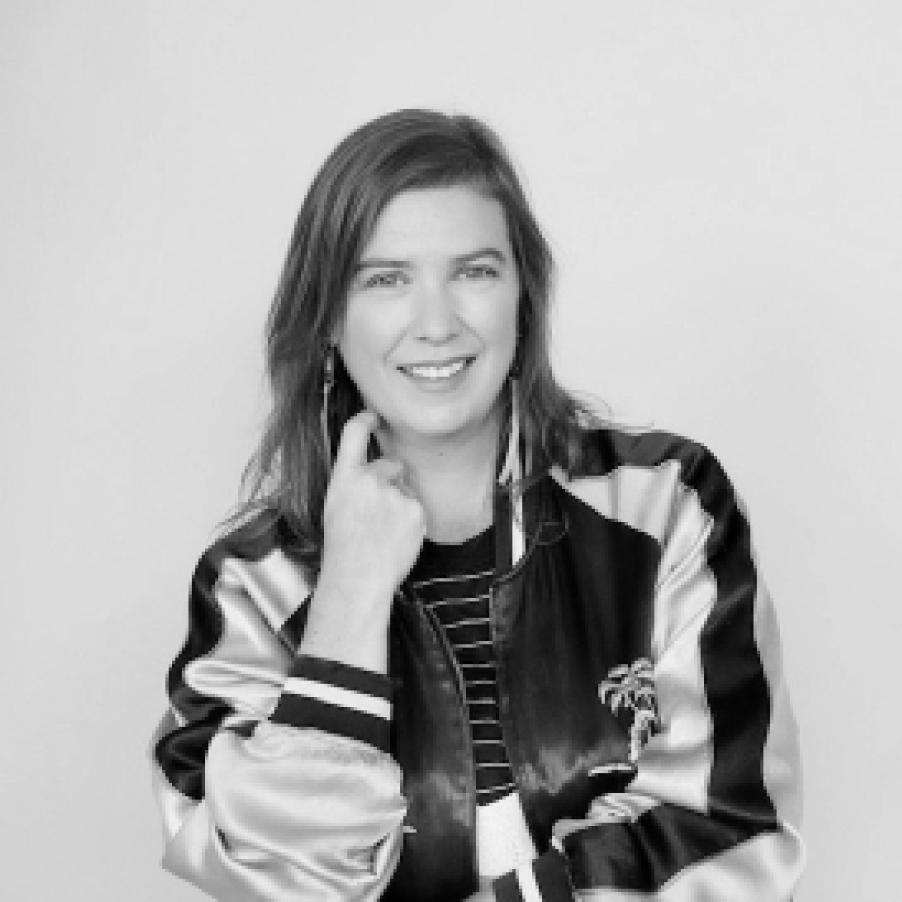
ASKING FOR A FRIEND
Do you think we will ever be able to protect our mental health and burnout when our industry can't say no to clients?
ASKING FOR A FRIEND - QUESTION
Feeling trapped by impossible client demands and wondering if we'll ever be able to protect our mental health in the creative industry? Jess Lilley, Creative Director with nearly two decades of advertising experience, and Ash King, psychologist specialising in creative mental health, tackle this tough question head-on. Spoiler alert: the problem isn't really about clients at all. This honest discussion reveals the systemic issues behind our industry's burnout culture and offers practical strategies for protecting your wellbeing while creating positive change. Because yes, you actually can say no to clients.
When Saying No to Clients Feels Impossible: Breaking the Burnout Cycle
The creative industry has a dirty little secret: we've convinced ourselves that we can't say no to clients, even when it's destroying our mental health. If you've ever wondered whether we'll ever be able to protect our wellbeing when our whole industry seems built on saying yes to everything, you're asking the right question.
The truth is, this feeling of powerlessness isn't just about difficult clients. It's a symptom of much deeper, systemic problems that have been festering in our industry for far too long. But here's the thing: understanding the real problem is the first step to protecting yourself and creating change.
This question was answered by Jess Lilley, Creative Director and Founder of The Open Arms with nearly two decades of experience in advertising and a deep understanding of industry culture, and Ash King, a psychologist and cyberpsychology researcher at the University of Sydney who specialises in supporting creative professionals with their mental health and wellbeing. Andy Wright, Host and CEO of Streamtime, facilitated the discussion.
The Problem Isn't Really About Clients
Let's get one thing straight: the issue isn't that clients are inherently unreasonable monsters who demand the impossible. As Jess points out: "I don't think the issue with our industry is that we can't say no to clients. I think that's a symptom of a systemic problem with the industry."
The real problem runs much deeper. Our industry has created a culture where self-interest comes before employee wellbeing, where burnout is worn like a badge of honour, and where saying no feels like career suicide. We've built systems that prioritise profit over people, and then we blame clients when those systems break down.
Recent research from the Ad Council of Australia paints a stark picture of just how broken things have become. The data is genuinely alarming: 8% of women experienced sexual harassment in the last 12 months, 25% of women reported being bullied (jumping to 51% for gender non-conforming people), and even 15% of men reported bullying experiences. These aren't isolated incidents at a few bad agencies. This is systemic.
The Scapegoating Problem
When agencies tell their teams they "can't say no to clients," they're essentially scapegoating their own poor systems and management decisions. As Jess explains: "Anyone in your workplace that is blaming clients is scapegoating their own systems for the problem."
Think about it logically. If you went to a client and said, "We'd love to do this project, but the timeline you've suggested would put undue stress on our staff and compromise our internal mental health policy, so we need another week," what client would respond with, "No, you must work them into the ground"? Most clients, particularly those in other corporate sectors (which, according to the research, are actually better at looking after their employees' mental health than we are), would respect that boundary.
The problem isn't that clients won't accept reasonable boundaries. The problem is that many agencies have never tried setting them.
You Can Say No (Really)
Here's something that might surprise you: you absolutely can say no to clients. As Jess states emphatically: "You can say no to clients, by the way, 100%."
The key is in how you frame it. Instead of saying, "We can't do that," try, "We can absolutely deliver what you need, and to do it properly while maintaining our quality standards, we'll need X timeline" or "We can do this within your timeline, but it will require additional resources."
This isn't about being difficult or precious. It's about being professional and honest about what it takes to do good work without burning out your team. Most clients would rather have a slightly longer timeline than receive subpar work from an exhausted, resentful team.
Protecting Yourself in a Broken System
While we work towards systemic change, you still need to protect yourself. As Ash wisely notes: "It's not just like a one person, you can't sort of self care away discrimination, racism, capitalist greed, you can't." The responsibility shouldn't fall entirely on individuals, but there are things you can do to safeguard your wellbeing.
First, recognise your own signs of burnout and put boundaries in place. Just as clients will take whatever agencies give, agencies will take whatever employees give. You need to be proactive about protecting your own limits.
Second, understand that knowledge is power. Knowing that these are systemic problems, not personal failings, can help you respond more strategically rather than just absorbing the stress.
The Power of Speaking Up
Silence enables bad workplace practices to continue. As Jess points out: "Silence is power sometimes in bad work environments, so the more that you can talk about if your own workplace has issues around lack of mental health safety and high incidence of burnout, the more that you can come together and talk about it, you know, safety in numbers."
When you let your organisation know that their practices aren't acceptable and they continue anyway, they're being negligent. Document these conversations. Talk to your peers. Create accountability through transparency.
There are movements within the industry working to create change. Groups like The Aunties have formed networks of women supporting women in response to ongoing harassment and discrimination issues. Youngbloods provides support for emerging talent. These communities prove that you're not alone in wanting something better.
Companies Are Starting to Listen
The good news is that organisations are increasingly being forced to pay attention to these issues. As Jess notes: "I think companies are having to listen. There's definitely more and more of that."
Whether it's because mental illness is now one of the highest causes of absenteeism at work, or because talented people are simply refusing to work in toxic environments, the business case for change is becoming undeniable. We spend a third of our lives working, so we might as well make those places as enriching, fulfilling, safe, and trusting as possible.
When Professional Help Is Needed
If you're experiencing serious mental health challenges due to workplace stress, burnout, or discrimination, don't try to handle it alone. Sometimes the systemic problems are too big for individual coping strategies, and that's when professional support becomes crucial. Mental health professionals who understand the creative industry can help you develop strategies for protecting your wellbeing while navigating these challenges. Find professional help resources here.
You're Not Powerless
The feeling that we can't say no to clients is really a feeling that we can't say no to a system that doesn't value our wellbeing. But you have more power than you think. Every time you set a reasonable boundary, every time you speak up about unacceptable practices, every time you support a colleague who's struggling, you're contributing to positive change.
The creative industry is slowly learning that the best work comes from healthy, supported teams, not from people pushed to their breaking point. Your wellbeing matters, your boundaries are valid, and you deserve to work in an environment that recognises both. The change might be slow, but it's happening, and you're part of making it happen.
our guests
Industry Leader

Jess Lilley
The Open Arms
Mental Health Expert

Ash King
ashking.com
Host

